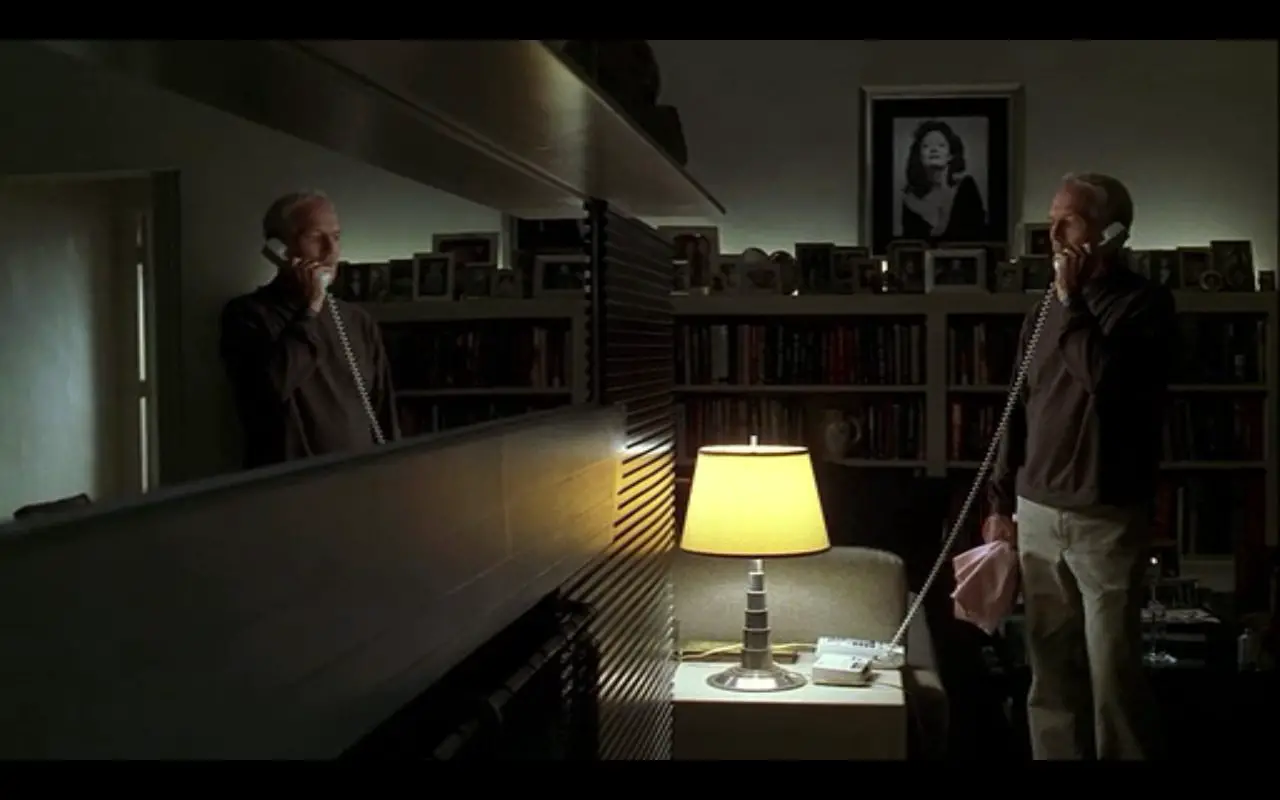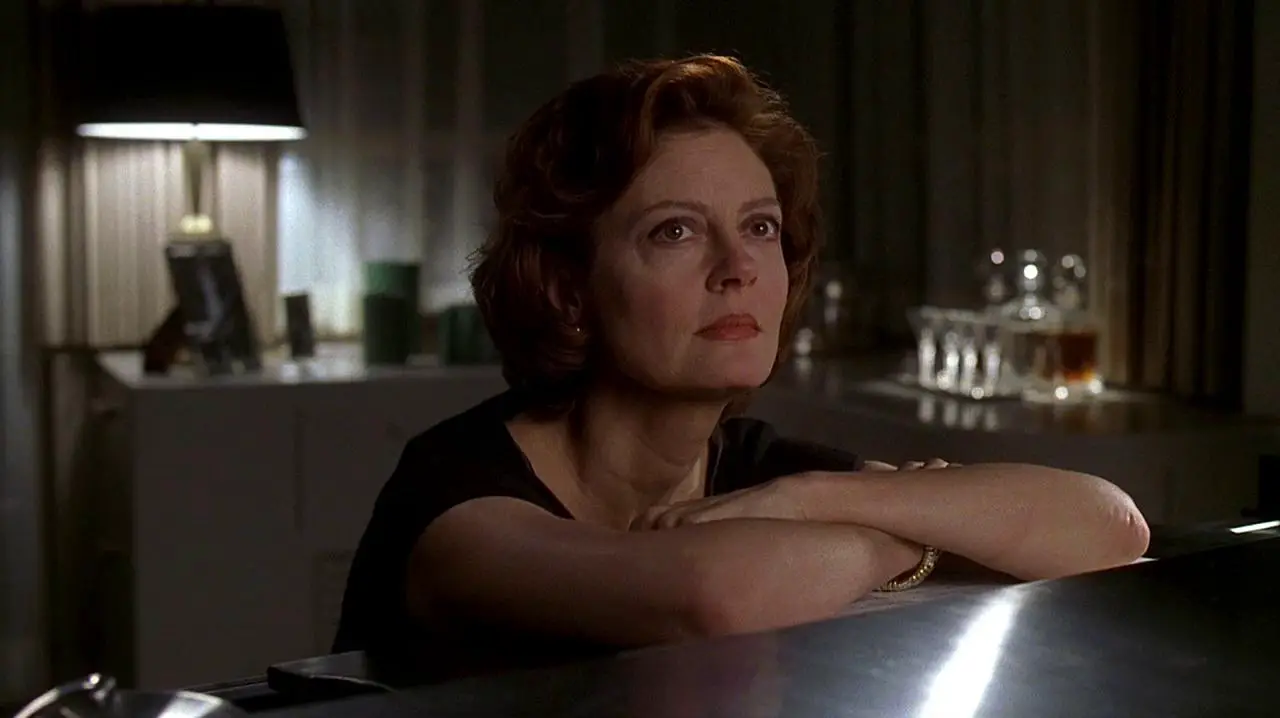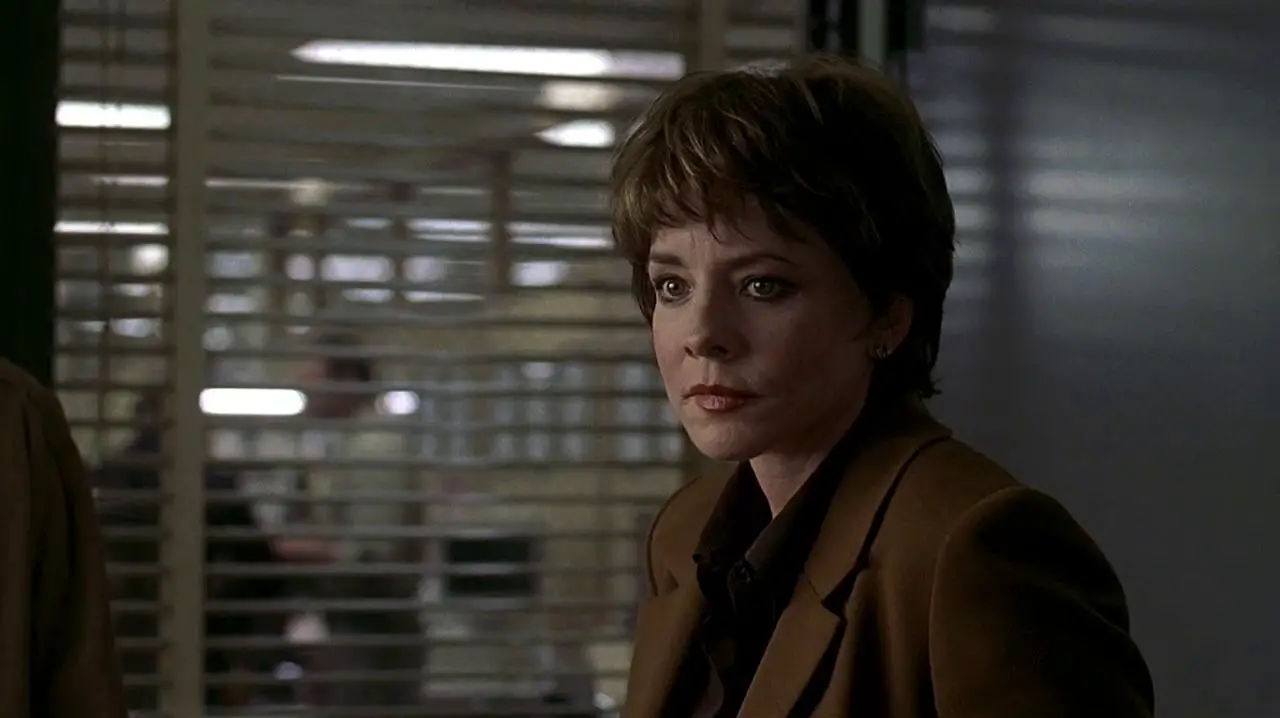Welcome to my column dedicated to the appreciation of physical media supplements called: Feature Presentations. The goal of this column is not to say whether a film is good or bad and worth picking up or not—I would like to highlight the discs that go the extra mile and provide film fans with enough tasty tidbits to satisfy even the hungriest of cinephiles. With all that out of the way, today’s article will focus on Twilight from the After Dark Neo-Noir Cinema box set from Imprint Films. My review of Twilight is part four of my series chronicling each film within the box set.

Sometimes films come along that scream, “can’t miss!” at the top of their lungs. It could be a once-in-a-lifetime idea, a massive budget, or generational talent coming together. The most iconic movie of talent coming together was 1995’s Heat, noteworthy as the first meeting of Al Pacino and Robert De Niro sharing a scene. I remember when Heat came out—getting Pacino and De Niro together was a massive deal at the time. Not every film shakes the ground quite as Heat did, yet the collection of talent is just as impressive, if not more. And this brings me to 1998’s Twilight.
I distinctly remember Twilight hitting theaters in early 1998, and there wasn’t much chatter. It came. It went. No one seemed to bat an eyelash. Why? When you have a talent as stacked as Twilight, one might assume the film would leave a larger footprint than it did. With Paul Newman, Susan Sarandon, and Gene Hackman headlining and James Garner, Stockard Channing, Reese Witherspoon, Liev Schriber, and others supporting, that should drum up plenty of attention. Instead, the film faded into a footnote with barely a shrug from critics or audiences. Did it deserve to be ignored? Do we have the makings of an unheralded masterpiece? It’s no Rush.
Not really. I think a shrug is a good way of surmising the film. It’s not bad by any means—Paul Newman can carry a movie in his sleep. The issue I have with Twilight is that the movie is old-fashioned in its storytelling, with an uninvolving plot that telegraphs any surprises it has much earlier than it would want. So, when nothing story-wise works, you resort to the performances to keep the film afloat. Newman proves why he is one of our finest actors as he charismatically plays a retired gumshoe who’s digging up mysteries from the past. Susan Sarandon does a well-enough job as the femme fatale, while Gene Hackman has nothing to do as Sarandon’s husband. While teaming up a handful of screen legends sounds like a slam dunk, Twilight plays more like Righteous Kill than Heat.
On the supplemental material front, Imprint Films included the interview, “Reflecting on Noir,” with editor Carol Littleton. Littleton talks about how Dede Allen and Verna Fields attempted to discourage her from working in film as it was considered a man’s world. Not to be deterred, Littleton discusses how she pressed on and details how she met Twilight‘s director Robert Benton through her husband. Littleton touches upon her thoughts on the script and defends against the critical drubbing the film took upon its initial release.

The final interview, “Elmer’s Twilight,” is an interview with film music historian Daniel Schweiger who discusses the life and composer of Elmer Bernstein. Schweiger discusses Bernstein’s blacklisting after refusing to name names during the House Un-American Activities Committee and having to score films outside of the United States. From there, he traces Bernstein’s career from The Ten Commandments, his Academy-Award-winning score for Thoroughly Modern Millie, to National Lampoon’s Animal House and Twilight. While shorter than one might hope, Schweiger does an admirable job at painting a picture of Bernstein’s life and work.
The Blu-ray release also includes two feature-length audio commentaries. The first track features film critics Alain Silver and James Ursini. Both men bring a wealth of knowledge to the Twilight table, mixing behind-the-scenes information with analysis and allusion throughout the film. Right from the get-go, the men detail how an action made by Paul Newman is similar to a moment from The Big Sleep. The critics dive into each actor’s past and how many tie into noir films of the past. Silver and Ursini share a good balance, each offering their thoughts and adding to each other’s statements. Silver and Ursini’s track is solid and well-informed that fans of the film should enjoy.
The second commentary track is with comedian/film critic Alexi Toliopoulos and film critic Blake Howard. Toliopoulos and Howard make for a livelier duo than the prior commentary—not to knock the work of Silver and Ursini, as each track has plenty of strengths. Toliopoulos and Howard’s enjoyment of the film radiates through the screen. The commentators discuss how the actors play their roles, Paul Newman donating a portion of his salary to Susan Sarandon to ensure equal pay, the film’s fascination with mirrors, and the filmmaker staging shots in classic noir fashion. The Toliopoulos and Howard track compliments the Silver and Ursini track and makes for an engaging one-two punch for film commentaries.
As to be expected, Imprint Films also provides the film’s theatrical trailer.
And there you have it! While Twilight sinks under a substandard script, one cannot deny that the film comes with wall-to-wall talent. The actors do what they can to elevate the material. Yet, one has to feel disappointed with a movie that features Paul Newman, Susan Sarandon, and Gene Hackman yet is just “ok.”

Thankfully, Imprint Films continues their winning trend of giving love and care to their physical media released to go far and above “ok” in the special features department. And while we do not hear from many associated directly with the film, what Imprint Films was able to add to this disc is more than anyone could have asked for. It may not sound like much, but two interviews and two commentaries do more than enough justice to earn Twilight a place that sits comfortably within the After Dark box set alongside Mortal Thoughts and Flesh and Bone.



